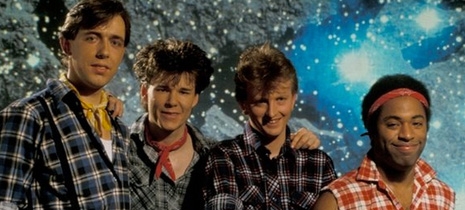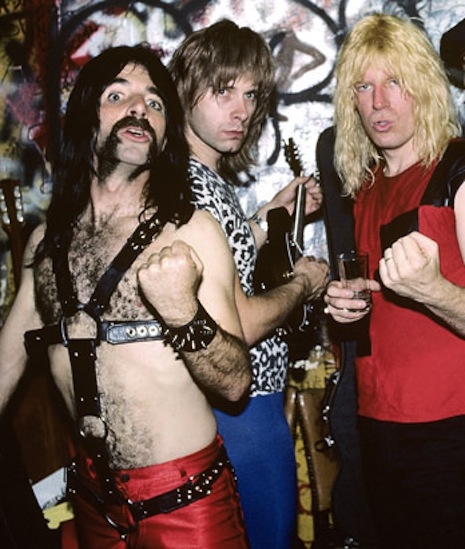
Walter Becker passed away last weekend. I’ve been listening to Steely Dan a ton all summer long, so the loss hit a little harder than usual. The news elicited the usual round of condolences and encomiums from fans across the world, a group that included one that maybe Becker’s fans weren’t waiting for as much. Michael McKean, lately killing it in Better Call Saul and of course (as David St. Hubbins) the lead singer of the world’s most preposterous heavy metal band, Spinal Tap, reminded his Twitter audience that Tap and the Dan did indeed once cross paths:
A dollop of Walter Becker genius. Tap asked him to write a little something technical re BREAK LIKE THE WIND & he did. pic.twitter.com/DX8XPz4Oo3
— Michael McKean (@MJMcKean) September 3, 2017
Michael McKean is probably the most musically gifted of the Spinal Tap guys—remember, he was once briefly a member of an actual band, namely the Left Banke, and his father was one of the co-founders of Decca Records. So on some level it makes sense that he would be the one to think of including Walter Becker in Spinal Tap’s 1992 album Break Like the Wind in the form of some silly-ass “technical notes.” That album was quite a star-studded affair, in fact, featuring the contributions of Jeff Beck, Dweezil Zappa, Joe Satriani, Slash, and Cher. I’m betting McKean was on the phone a lot that year.
Becker’s notes make up one “panel” of the fold-out lyrics sheet on the CD release. You can see a picture of the whole shebang on the Australian CD release. The entirety of Becker’s account of “the astonishing Crosley Phase Linear Ionic Induction Voice Processor System” runs exactly four paragraphs, in which space Becker earnestly touts the invention of one “Graehame Crosley” which functions by “measuring “the flow of ionic muons” from the singer’s vocal output, for which the singer is obliged to “wear on his person a number of small balance plates which will offset the fields created by various inanimate objects on his body at the time of the recording.” The duly muon-measured vocal stream, in the case of this album, was then captured on “the huge BBC 16 channel cassette recorder which the band had schlepped over from David’s home studio.”

Not surprisingly, Becker absolutely nails the particular tedium and self-importance familiar to anyone who has perused such technical accounts on album liner notes, but was careful to sprinkle in a few unmissable gags to get the sought-after chuckles from Tap’s fan base. But this would not be a Steely Dan story if there weren’t some grousing and bad feeling somewhere. In the April 1992 issue of Metal Leg, the exhaustive Steely Dan newsletter that existed from 1987 through 1994, Becker wrote an account of submitting those “technical notes” to the Tap crew. His primary contact was “Mike McKeon” (sic), and according to Becker, Spinal Tap wanted Becker’s text primarily for use “in a throwaway fashion, more as a design element than anything else”—which seems rather unlikely when you think about it, you don’t go to Walter Fucking Becker for the equivalent of musical lorem Ipsum text. But Becker was “perhaps erring on the optimistic side insofar as a good outcome was concerned” because the Spinal Tap guys pared down Becker’s text somewhat, indeed omitting an entire paragraph dedicated to an account of dealing with the Crosley System’s inability to deal with a vocalist who had previously undergone a brass kidney transplant (this being Derek Smalls).
Having his text fucked with in this manner seems to have really set Becker off, who tetchily informs Metal Leg that by being able
to set the record straight, I feel that I may yet snatch victory from the clutches of disaster, especially since your circulation may well exceed the sales of the doleful Tap disc, once we correct for the high percentage of non-readers or remedial readers in the ranks of Tap purchasers, many of whom bought the CD by mistake anyway, thinking it was either a) an actual heavy metal album, or b) funny.
Whoa! All you angels up there in heaven, do make sure to not get on Walter Becker’s bad side!
It could be that this minor conflict, such as it is, explains Becker’s noticeable omission from the album’s list of thanked people (the five guest musicians mentioned above all got thanked).
Much more after the jump, including Becker’s original, unedited submission to Tap…....













